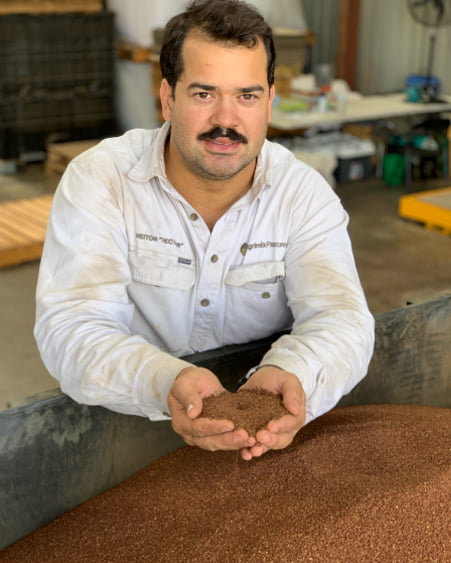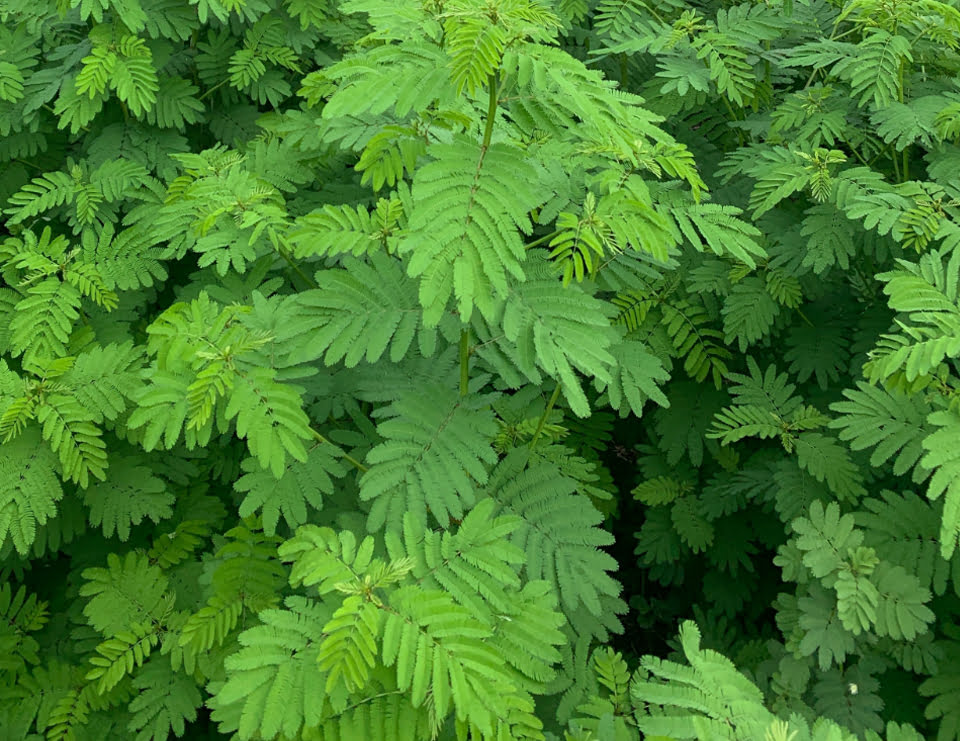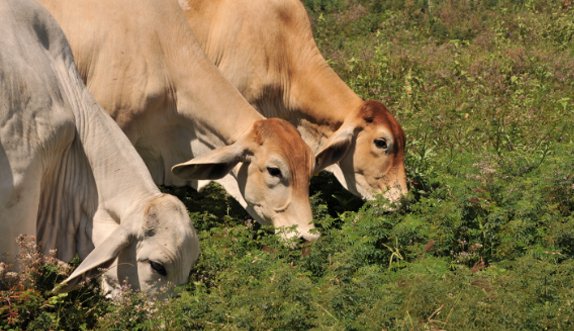Progardes® Desmanthus
Driving pasture productivity
Progardes® Desmanthus is a pasture legume scientifically developed to improve and sustain your pastures. It is persistent, productive in clay-rich soils, and naturally adapted to a broad range of harsh conditions.
Progardes® Desmanthus is a highly palatable source of protein, with excellent digestibility that converts to faster, higher weight gains. Independent trial results indicate that tropical legumes such as Desmanthus help maintain pasture productivity resulting in more dry matter production and higher protein levels compared to grass-only pasture.
Keys to successful
establishment
Wondering how to plant Progardes®?
Our pasture seeds and Progardes® are now supplied by Selected Seeds. Please contact them for further information and sales enquiries.
Progardes® planting rate
guidelines
To avoid preferential grazing and improve the overall sustainability of your pasture, aim to establish Progardes® Desmanthus across the whole paddock, not in selective areas.
Planting rate will depend on the level of seed bed preparation, scarification, and planting method. Agrimix Pastures can provide assistance for solutions to your planting requirements. We also recommend that you consult with your Agronomist when planning your pasture mix and preparing your seed bed.
preparation
Aerial
rate
Progardes® Desmanthus seed is uncoated, delivering more Pure Live Seed in every kilogram you spend and more seed in every kilogram.

WHEN TO PLANT?
September - mid-January
Key indicators
- Soil temperature >15°C
- Soil moisture greater than 40cm by mid-January
September-November
January-February
Key indicators
- Soil temperature >15°C
- Soil moisture greater than 40cm by mid-January
*Note: December is typically too hot to plant
Key indicators
Things to consider
when establishing Progardes®
- Follow up rain calculate the probability that rain will arrive, Progardes® needs some follow up rain to establish
- Monsoonal rain weather patterns conserve soil moisture and manage competition
- Low rainfall area faecal seeding with hard seed is the preferred seeding method in low rainfall areas
- Heat wave conditions avoid planting in heatwave conditions
- Planting too close to a frost complete planting 2-3 months before the frost
Faecal seeding with
Progardes® Desmanthus
Sustain your pastures and increase your productivity
How does faecal seeding work?
Being a hard-seeded legume, Desmanthus has a natural hard seed coat well-suited to faecal seeding.
Progardes® Desmanthus seed can be purchased as hard seed suitable for faecal seeding. The hard seed coat protects the seed from germination as it passes through the animal’s gastro intestinal tract. The seed then sits in a viable state in the dung ready to germinate when conditions are suitable.
Progardes® Desmanthus is well-suited to faecal seeding, being hardy, untreated, palatable and having excellent seed recruitment.
How should faecal seeding be used?

How to plant Progardes® using faecal seeding?
Progardes® hard seed should be added into your lick tubs during the feeding period at a recommended seeding rate of 2kg/ha. Progardes can be mixed with molasses or dry lick. The quantity of seed required for your paddock will depend on the paddock area and the length of the feeding period. The longer your feed period, the better the establishment. Read our Guide for more information on calculating your seed requirements



